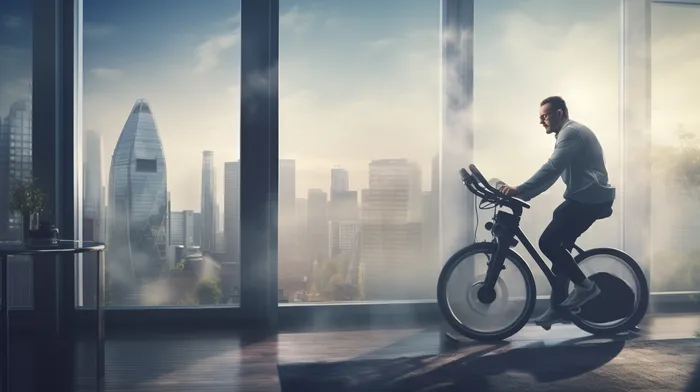Did you know that air pollution can shorten your life? But what if I told you that there is a way to counter some of its lethal effects? The answer is simple, yet often overlooked: exercise.
A 17-year study conducted in Denmark demonstrates that while air pollution can endanger your health and lead to an earlier death, staying physically active can help nullify part of that risk.
The Importance of Exercise
According to researcher Zorana Jovanovic Andersen from the Center for Epidemiology and Screening at the University of Copenhagen, “Even for those living in the most polluted areas of Copenhagen, it is healthier to go for a run, a walk, or to cycle to work than it is to stay inactive.”
Other studies have shown that exercise reduces your risk of premature mortality, while air pollution increases your chances of early death. While exercising outdoors means you might breathe more deeply and take in more pollutants from the air during your workout, you are still improving your health compared to those people who remain sedentary.
Breaking the Barrier
“Air pollution is often perceived as a barrier to exercise in urban areas,” says Andersen. In the face of increasing health problems due to rising physical inactivity and obesity in modern societies, Andersen’s findings provide support for efforts in promoting exercise, even in areas with high pollution. However, Andersen advises people to exercise and cycle in green areas, parks, woods, with low air pollution, and away from busy roads, when possible.
The study looked at the health and exercise habits of over 52,000 middle-aged urban Danes from 1993 to 2010. Individuals who exercised, even if they lived in parts of Copenhagen with the worst traffic and busiest roads, had a 20% less chance of dying during the study than people who never engaged in physical activity.
The Best Type of Exercise for Lung Power
The ideal kind of exercise to increase air exchange and build more powerful lungs isn’t aerobics or cardio. These activities make your lungs more efficient but smaller. What you want is power, and to obtain that, you need shorter and higher intensity workouts.
A great way to achieve this is by doing a hard sprint on a stationary bike, for example. Just 2 or 3 minutes of sprinting separated by rest periods can challenge your heart and lungs to grow stronger and keep up, thereby increasing your lung power and enabling you to exchange and filter a higher amount of air.
Additional Benefits of Exercise
Physical exercise has other benefits when it comes to combating air pollution’s health effects. For instance, exercise is known to improve immune function, which can help counter the adverse effects of pollution on our respiratory systems.
Additionally, physical activity can assist in clearing pollutants from your lungs and airways. When you exercise, you take in more substantial and deeper breaths, which helps increase the airflow through your respiratory system and removes trapped pollutants.
Protecting Yourself from Air Pollution
Besides exercising, there are several other ways you can protect yourself from air pollution, especially if you live in high-pollution areas. Here are some methods you can implement:
- Keep your indoor air clean by using air purifiers and regularly changing air filters.
-
Stay updated on air quality reports, and if the pollution level is high, avoid engaging in outdoor activities during peak hours, typically midday to early afternoon.
-
When outside, avoid walking near busy roads or areas with high levels of traffic. Instead, choose side streets and parks for strolling or jogging.
-
Plant air-purifying plants like spider plants, snake plants, or aloe vera in your home.
-
Contribute to combating air pollution by adopting greener practices, like opting for public transportation, carpooling, or riding a bicycle instead of driving.
In Conclusion
Don’t let air pollution become a barrier to staying active and healthy. Combine regular exercise with other smart habits, such as being aware of air quality levels and adopting greener practices, to protect yourself and your loved ones from the harmful effects of pollution. Remember, a healthier you is a happier you!


![8 Simple Tips for a Longer, Happier Life [See Them Now]](https://naturalhealthreserve.com/wp-content/uploads/2024/01/8-healthy-tips-live-longer-slideshow-300x168.webp)
